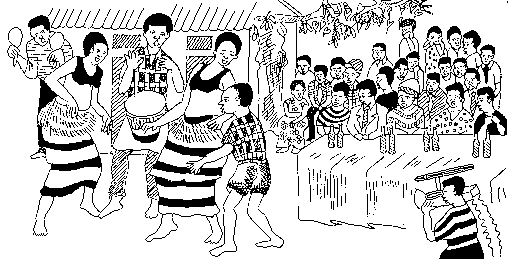Community Empowerment/Thirty Minutes
Thirty Minutes
The Community Empowerment Collective is a not-for-profit association located world wide which works on the Internet to produce, translate, and make available free training material for strengthening communities. It has an annual budget of zero. It is registered in Victoria, British Columbia, in Western Canada. The Community Empowerment methodology starts with the idea that capacity can not be built (social engineering), but the community can be stimulated and encouraged to develop itself. There are roughly 200 documents on the web site which are aimed at training mobilizers to work in communities to stimulate the Community Empowerment methodology. These are translated by unpaid volunteers (to various extents) into about thirty languages. The training emphasizes “How-to” rather than theory and research about the empowerment methodology. It aims to write at a level of language for middle school leavers, and provides an extensive set of key words to cover the vocabulary they might not yet know. The web site is non commercial, has no advertising, and is provided for free and without editorial control by the Seattle Community Network (SCN)

The following are the eight principles of empowerment:
1. The balance of power (opinion makers and leaders, not merely the demographic majority) must desire the community to become more self reliant and willing to make efforts and sacrifices to become so. (Leaders and opinion makers may be formal and/or informal, officially recognized and/or unrecognized). Without this, the mobiliser would be wasting time and better employed in another community;
2. An experienced and/or trained agent must be available to intervene to stimulate and guide the community to organize and take action to overcome poverty and become more self reliant. The mobiliser may be one with natural talents and skills, while the training on the web site is aimed at developing and sharpening those skills and talents;
3. While assistance can be offered, it should not be charity assistance which promotes dependency and weakness, but partnership, ie assistance and training that promotes self reliance and increased capacity;
4. Recipient organisations or communities should not be controlled or forced into change, but professionals trained as activists or mobilisers should intervene with stimulation, information and guidance. Persuasion and facilitation are needed;
5. Organisms become stronger by exercising, struggling, and facing adversity. Empowerment methodology incorporates this principle for social organisations. Sports coaches use the slogan, "No pain; no gain." We do not promote pain, but do promote struggle and effort;
6. Hands on participation, especially in decision making, by the recipients, is essential for their increase in capacity. Decisions can not be made for or on behalf of the community;
7. A substantial proportion (it varies) of the resources needed for a community project (ie the action) must be provided by the community members themselves;
8. We need to aim at the participants from the beginning taking full control, exercising full decision making, and accepting full responsibility for the actions which will lead to their increased strength.
The web site also provides many practical descriptions of how to do things related to empowerment, ranging from gender balance, income generation, functional literacy, community mobilization, enabling environment, participatory appraisal, through planning, project design, management training, proposals, report writing, to applications in various sectors.